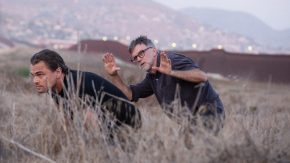The upcoming performance by the renowned Egyptian ensemble Mazaher, as the opening act of the Budapest Ritmo Festival, promises to transport its audience to a mythical and sacral realm. Focused on ancient musical genres, the ensemble’s repertoire is sure to captivate those drawn to melodies that trace their origins back to the very dawn of civilization. The harmonies on offer are set to be distinct from the familiar, ushering listeners into an entirely different soundscape.
As I delved deeper into the meaning of the name ‘Mazaher,’ my curiosity led me to explore the genre of zaar, which the concert is set to showcase. I initially discovered that Mazaher is also the name of a traditional orange blossom water from Lebanon and Syria, but my further research revealed that zaar is a centuries-old ritual that is still practiced today. The ritual entails achieving a trance state through repetitive rhythms of drums, ancient lyrics, and chants. Its purpose is to alleviate illness caused by the belief that jinn or spirits coexist with humans and can possess them. While Islam has prohibited this ritual, it is still performed in certain communities.
The Yaar ritual is not merely an exorcism but also a means of transferring knowledge, as I discovered. A fascinating aspect of this ancient ritual is that it is predominantly performed by women, with only a handful of men participating. The ritual is always led by a female, as I read in one of my sources. I was intrigued to learn that Mazaher’s members themselves perform the ritual, allowing the audience a rare glimpse into this world.
It is heartening to know that Mazaher’s members are considered the last performers of the zaar, as the younger generation in their homeland is increasingly finding it challenging to carry forward this tradition. Though animal slaughter was once a part of the ritual, it has thankfully been abolished. While the zaar originated in East Africa, it flourished mainly in Egypt, though the practice was known as far as the Arabian Peninsula and persia. The ritual begins with slow drumbeats and progressively builds up to more frenzid rhythms, mirroring the possessed person’s increasingly animated movements. Scientific studies have shown that the specific instrumental rhythms, particularly the sound of the drums, contribute to inducing this particular state. Researchers into ritual music have found commonalities in the monotonous repetition of rhythms across different cultures, underscoring the universal appeal of this form of music.
Although modernized to a certain extent, the zaar ritual still retains its essential elements, as experts have noted. During the performance, Mazaher employs not only drums but also a unique stringed instrument. However, unlike traditional zaar performances, the concert will not include any elements that induce fear or apprehension.
Besides the concert, Mazaher is offering a workshop that delves deeper into this unique world, providing a rare opportunity for participants to gain a more profound insight into this age-old tradition. Preceding Mazaher’s performance is Tariqa, a group founded by Said Tichiti, which brings the ancient Moroccan trance music form gnawa to the stage, also known as “the oldest rock’n’roll in the world, 4,000 years old.”
Article: Anna Rácz
Translation: Nóra Fehér

























Comments